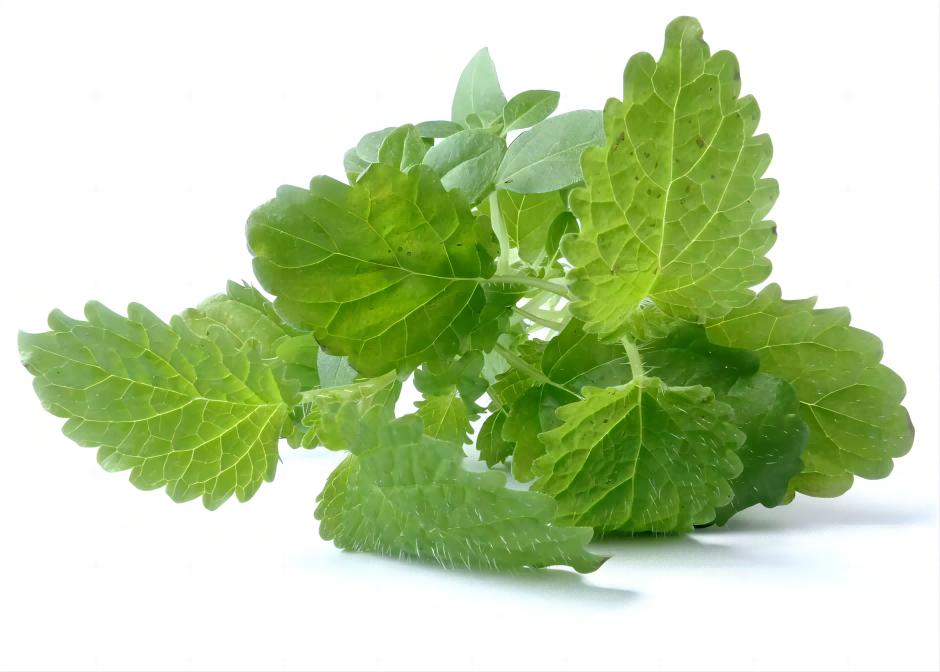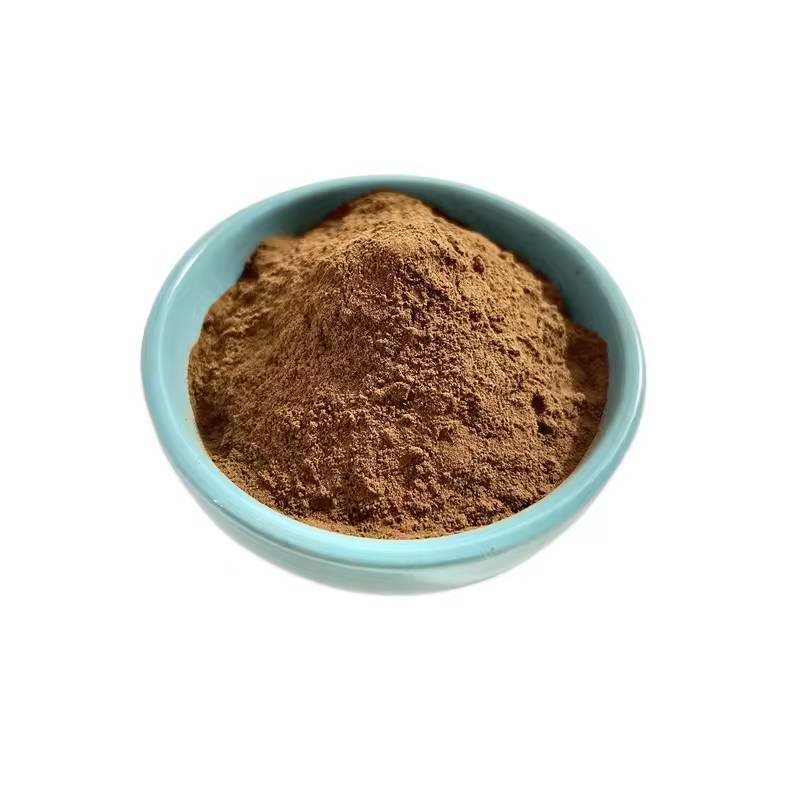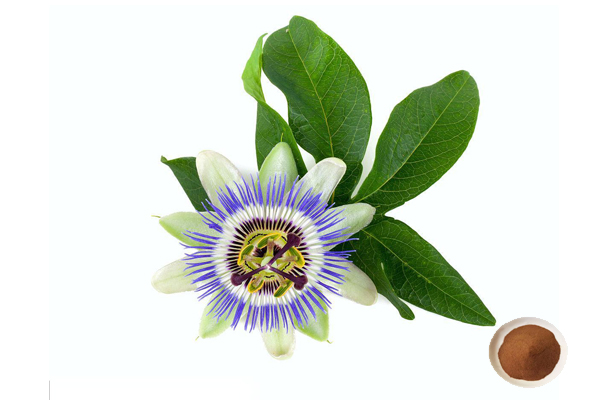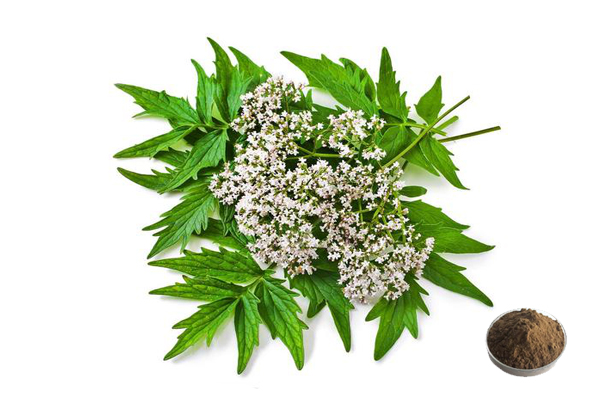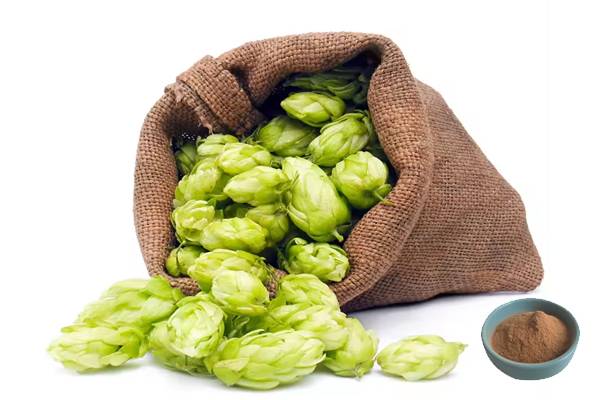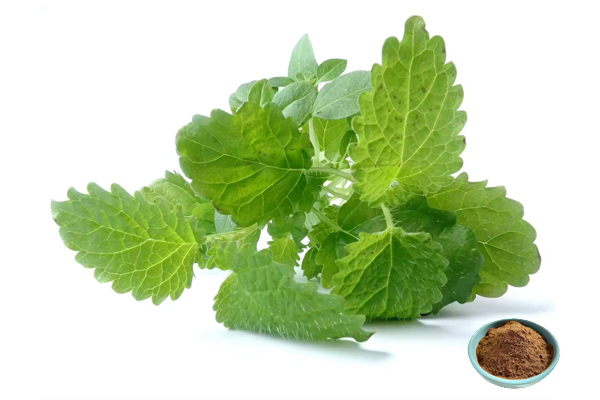Extrait de feuille de mélisse 5% d’acide rosmarinique
Source:Melissa officinalisL. Herbe entière
Nom Latin :Melissa officinalisL.
Ingrédients actifs: acide rosmarinique
Spécification :5%
Méthode d’essai :UV
Apparence: poudre brun jaune
Résidu de Pesticide: conforme à la norme (ce) No 396/2005
- Description Description
- Fiche technique
- Certificat de formation
-
Qu’est-ce que l’extrait de feuille de mélisse?
Melissa, le nom de genre Melissa, est dérivé du mot grec qui signifie " amour de l’abeille "....... Son odeur fraîche, douce et parfumée au citron, c’est pourquoi elle est également connue sous le nom de mélisse citronnée. Malgré sa similitude d’apparence à la menthe, baume n’est pas dans la famille de la menthe, même si certains peuvent l’appeler menthe parfum citron. L’extrait de feuille de mélisse est l’ingrédient actif extrait des feuilles de Melissa officinalis L., famille Labiatae.
Modern research has confirmed that vanillin, citral, rosemary acid, and other components in the lemon balm leaf extract can inhibit GABA transaminase in rat brain tissue, thus interfering with GABA metabolism, increasing the content of GABA in the brain, reducing the excitability of the nervous system, and playing a calming and soothing role in resisting anxiety.
La technologie Green Spring fournit l’extrait de feuille de mélisse 5% de réduction d’acide rosmarinique, la poudre est homogène et fine, avec des propriétés stables, une bonne solubilité et une faible teneur en humidité, ce qui peut prolonger la période de stockage.
Green Spring Technology est une société de biotechnologie leader en Chine avec 7 certifications et 7 brevets et a été attribué Halal, casher, COSMOS, BRC, IFS, FDA, ISO et de nombreuses autres certifications. Nos produits sont fabriqués selon les normes internationales les plus élevées de l’industrie, en conformité avec ue EC396, ue 2023/915 et les normes les plus élevées en matière de résidus de solvants.
Spécification:
Nom du produit
Mélisse citronnelle Extrait de feuille
Nom Latin
Melissa officinalisL.
Source:
Melissa officinalisL. Herbe entière
Ingrédients actifs
Acide rosmarinique
spécification
5%
Méthode d’essai
UV
apparence
Jaune brun poudre
Résidus de pesticides
Conforme à la norme (ce) n ° 396/2005
Règlement:
Il est conforme à la réglementation de l’ue.
Discover Our Comprehensive, Compliant, and Consistent Standardized Lemon Balm Extract Ingredient Solutions.
Vous cherchez un devis?Benefits:
Calms and Soothes, Fights Anxiety
Rosmarinic acid is one of the active ingredients of lemon balm leaf extract. It has been proved that rosemarinic acid can inhibit GABA transaminase and inhibit the degradation of GABA, thus increasing the concentration of GABA in the brain, which has a calming and soothing effect on anxiety. In addition, rosemarinic acid has antioxidant and free radical scavenging and nerve cell protection effects, which in turn improves anxiety. Lemon balm leaf extract can be used as an anti-anxiety, mild sedative with improved mental mood, and some studies have shown it to be effective in relieving stress.
Antimicrobial
The antimicrobial properties of Lemon Balm have also been demonstrated, the ethanol fraction of lemon balm leaf has very significant antimicrobial and antiseptic effects and has synergistic antimicrobial effects with sodium nitrite, sodium benzoate and potassium sorbate. Other components in the extract such as rosemarinic acid, caffeic acid and flavonoids are known to have antibacterial activity against the following bacteria: Bacillus subtilis, Bifidobacterium bifidum, Corynebacterium roqueforti, Escherichia coli, Klebsiella spp., Acidophilus spp., Lactobacillus fermentum, Lactobacillus plantarum, Lactobacillus rhamnosus, Listeria monocytogenes, Pseudomonas aeruginosa, Salmonella enteritidis, Shigella spp., Staphylococcus aureus and others. resistance, and fungi such as Candida albicans, Aspergillus niger, and Streptomyces symphonis are resistant.
Anti Inflammatory and Antioxidant
The components of linalool, linalooic acid, linalooene, and linalool hydrocarbons contained in the extract of Melissa officinalisL. have antibacterial, anti-inflammatory, and antioxidant activities, which can inhibit the growth of various bacteria, including Staphylococcus aureus, Escherichia coli, Pseudomonas aeruginosa, and Streptococcus, as well as inhibit various inflammatory reactions, including cytokines (such as interleukin-1) α)、 Release of antioxidants and anti cytotoxic substances; In addition, Lemon Balm also contains a large number of antioxidants, such as vitamin C and flavonoids, which can inhibit the formation of free radicals and prevent oxidative damage.
Anti-Allergy and Oil Control
One of the most commonly used botanical extracts for allergies, Lemon Balm Leaf extract can easily handle allergies that not even German Chamomile can handle. At the same time, the oil-controlling power of bee balm is excellent, effectively balancing the skin's oil.
Applications:
For Health Products:
Lemon Balm Leaf Extract has antidepressant, anti-anxiety, and sleep aid effects. In addition, lemon balm has a variety of effects such as improving memory and neurodegenerative diseases, antioxidant, antibacterial, and anti-inflammatory, gastrointestinal protection, regulation of menstrual disorders and dysmenorrhoea in women, and improvement of hyperlipidaemia. As an ingredient, vanilla extract has been used as an additive in various health products.
In Cosmetics:
Lemon Balm Leaf extract contains rosmarinic acid, which protects the skin from the damage and oxidative stress caused by sun and screen blue light exposure. It has antioxidant activity that reduces the production of reactive oxygen species (ROS), thereby reducing oxidative damage to the skin caused by UV and blue light exposure. Lemon Balm Leaf extract powder has been used as a cosmetic ingredient.
-
Get Your Free COA
-
Télécharger le document
Cosmos Green Spring Technology
Télécharger le documentHalal Green Spring Technology
Télécharger le documentKosher Green Spring Technology


 Anglais
Anglais français
français espagnol
espagnol russe
russe coréen
coréen japonais
japonais



